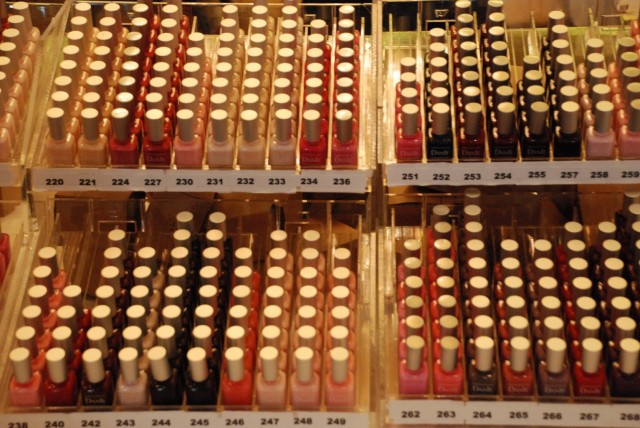
In Richmond yesterday, state toxic chemical regulators launched what they say is the nation's most comprehensive program for identifying and reformulating common consumer products containing hazardous chemicals.
California's Safer Consumer Products Initiative takes effect Oct. 1 and will require manufacturers to seek safer alternatives to harmful ingredients such as toluene, used in nail polish, and formaldehyde, used in carpet glue.
Under the new rules, regulators at the California Department of Toxic Substances will compile lists of more than 100 products for review. Regulators will then focus on a handful of "priority" products, and manufacturers will have to provide analysis and explanation about why toxic chemicals are necessary in the products and whether substitutes are available.
The program was unveiled at green stamp-making business Hero Arts in Richmond, which uses organic colors and dyes. "Innovative and forward-thinking companies realize the opportunities for growth that stem from this cutting-edge regulation," Department of Toxic Substances Control Director Debbie Raphael said at the event, according to the Mercury News. "Smart businesses are already planning ahead."
The Los Angeles Times reported earlier this week that
The agency has been working on the new rules since 2008 after the state Legislature passed a pair of bills backing a so-called green chemistry initiative by then-Gov. Arnold Schwarzenegger, a Republican. The first effort was abandoned in late 2010. Incoming Democratic Gov. Jerry Brown ordered the regulation-writing process rebooted.
Environmental and public health advocates generally support the regulations as pioneering.
"This marks a sea change in the way that California is going to be managing toxic chemicals," said Gretchen Lee Salter, senior program and policy manager at the Breast Cancer Fund in San Francisco. The national organization focuses on prevention.
The Times noted that some industry groups oppose the new rules as overly complicated, costly and likely to scare consumers unnecessarily.